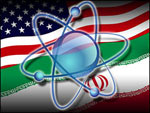
London, 26 Aug – As the US Congress reviews the Iran nuclear deal, it faces the hardest choice in foreign affairs: whether to threaten or appease an adversary. The proper choice, scholars agree, depends on the rival’s intent, Prof. Alan J. Kuperman wrote on Tuesday in The Hill.
“If the other country is ‘status quo’ – just wants to be left alone to prosper without dominating other countries or flouting international rules – we should concede its limited demands. Appeasement is not a dirty word in such a case, but the ideal foreign policy. However, if the other country is ‘revisionist’ – seeking to dominate others and overturn the global order – we must deter it through coercion including the threat of force”, he wrote.
“Such advice may sound simple, but misreading intent can lead to disaster. If we threaten a status quo country, the result can be unnecessary war, such as the U.S.-led invasion of Iraq in 2003. The opposite mistake – appeasing a revision state – can be even worse. Conciliating Nazi Germany led to a war so terrible that ‘appeasement’ has forever been transformed into an epithet”.
“Though no two historical moments are identical, the similarities between the pending Iran nuclear deal and the Munich agreement of 1938 are haunting”.
“In each case, our adversary clearly demonstrated its intent to upend the international order by taking control of neighboring countries, starting with co-ethnics. The Nazis absorbed Austria, then set their sights on Czechoslovakia’s Sudetenland, which had a large ethnic German population. Similarly, revolutionary Iran has deployed forces or provided arms to militias in Iraq, Lebanon, Syria, and Yemen – which have significant populations of fellow Shiite Muslims or related sects. It also funds the military wing of Hamas and threatens to destroy our ally Israel”.
“Prior to negotiation, our adversary in each case repeatedly broke international legal commitments. Nazi Germany violated the Versailles Treaty by expanding its military, reoccupying the Rhineland, and taking Austria. Iran violated the Nuclear Nonproliferation Treaty by separating plutonium, testing nuclear weapons components, and constructing multiple secret facilities for uranium enrichment and heavy-water production”.
“Rather than reversing these violations, negotiators in both cases acquiesced to them and further rewarded the adversary. In Munich, Britain authorized Germany to seize part of Czechoslovakia, whose industries greatly enhanced the Nazi war machine. Under the nuclear deal, Iran not only keeps its uranium enrichment and heavy-water programs, but gets sanctions lifted and assets unfrozen, enabling expansion of its nuclear program, regional aggression, and terrorism”.
“Perhaps the eeriest parallel is that each deal was promoted as the only alternative to war. British Prime Minister Neville Chamberlain proudly declared that his Munich agreement had ‘averted a catastrophe which would have ended civilization as we have known it.’ President Obama likewise declares that his agreement is the only way to prevent ‘another war in the Middle East.'”
“In retrospect, of course, Britain should have stood firm at Munich. At best, Hitler would have been deterred from further aggression. At worst, the allies’ war effort would have been facilitated by not gifting Czechoslovakia’s industrial base to Nazi Germany. Similarly, Iran should be confronted before it has nuclear weapons, not after”.
“Proponents of the Iran deal say it is too late to reverse course because other countries favor it and will lift sanctions anyway. But Munich also was a multilateral negotiation, including both France and Italy. Has anyone ever argued that Chamberlain was right to appease Hitler because Mussolini favored doing so?”
“To the contrary, Winston Churchill argued eloquently at the time that the only responsible policy was to reject appeasement of a country, ‘which vaunts the spirit of aggression and conquest, which derives strength and perverted pleasure from persecution, and uses, as we have seen, with pitiless brutality the threat of murderous force.’ That perfectly describes revolutionary Iran, whose supreme leader calls for ‘Death to America.’”
“In 1938, Chamberlain reassured the British people that his agreement was ‘bringing peace with honor. I believe it is ‘peace for our time.’ Go home and get a nice quiet sleep.'”
“Let us hope that Congress is not lulled to sleep this time”, he added.
Prof. Alan J. Kuperman is associate professor in the Global Policy Studies graduate program at the University of Texas at Austin, and editor of “Nuclear Terrorism and Global Security: The Challenge of Phasing out Highly Enriched Uranium.”


